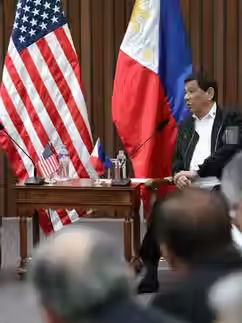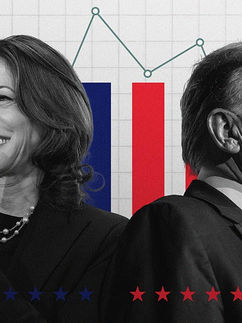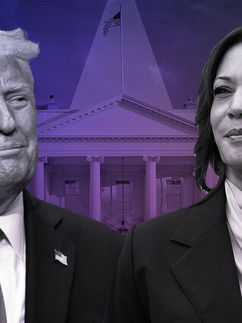The Normalisation of Sudanese-Israeli Relations

Faseeha Hashmi
Hailed by some as proof of US President Donald Trump's deal-making prowess, the announcement of an apparent thaw in relations between Sudan and Israel is seen as a historic feat. On October 23 2020, the Sudanese government abandoned the Arab League’s 1967 Khartoum Resolution by agreeing to normalise ties with Israel. This decision is significant as it overturned the “The Three No’s” — no peace with Israel, no recognition, no negotiations. However, the Arab League’s unity on this Declaration was short-lived. The symbolic decision to maintain no contact with Israel both diplomatically and economically has been broken several times, with Egypt agreeing to peace in 1979, followed by Jordan in 1994. For half a century, while most Arab states refused to recognise Israel, the tide has begun to turn with the United Arab Emirates (UAE), Bahrain and now Sudan choosing to reconcile divisions with Israel. This transformational leap in policy demonstrates a shift in political considerations for Sudan, which was once vehemently opposed to Israel. So what finally encouraged Sudan to follow suit?
What does the deal entail?
Much to the pleasure of Israeli Prime Minister Benjamin Netanyahu, who boldly declared a "dramatic breakthrough for peace" and the start of a "new era”, the historic deal was announced in a joint phone conversation by President Trump, Prime Minister Netanyahu and Sudan’s Prime Minister Abdalla Hamdok. Unlike Bahrain and the UAE, Sudan is a large state with a population of 41 million people, and has a long history of military conflict with Israel. Moreover, Sudan has previously come to the aid of Palestinians, sending troops to both the wars of 1948 and 1967. However, in recent times, the dynamics of Sudan's political landscape have shifted rapidly with the ousting of Omar al-Bashir in 2019, bringing with it the end of nearly 30 years of dictatorship which was replaced by a transitional civilian-military council.
Though Israel and Sudan are not direct neighbours of one another, the two states have clashed on a number of issues. For example, Sudan lies on the travel route taken by many refugees on their way to Israel. As part of the new peace deal fostered by President Trump, Sudan agreed to pay more than $330 million in compensation to the families of US victims affected by terrorists sheltered by Sudan during the 1990s. In exchange for this and the recognition of Israel, Sudan will be removed from the US blacklist of state-sponsors of terrorism. In addition, Sudan will be relieved of harsh economic sanctions and receive significant US aid and investment.
Similarly to the sanctions placed on Iran, sanctions on Sudan have stipulated that US banks are prohibited to do business with Sudan. This is also coupled with European Union sanctions, which are not as far-reaching. Coupled with other factors such as flooding, locust infestation and war, these harsh sanctions have created a dire need for Sudan to seek economic relief. Moreover, in 2011 when South Sudan gained independence from Sudan, Sudan lost 70 per cent of its oil reserves alongside one-third of its land. Therefore, the decision for Sudan to re-evaluate its regional priorities appears mostly driven by its desperate economic situation. Rising inflation has caused a surge in food and transport prices fuelled by impoverishment and the civil unrest following the fall of Sudan’s longtime dictator. Now, aided by this accord to strengthen its economy, the question that remains is whether the Sudanese government can deliver on the agreements reached.
Siding with Palestine
A growing number of countries have formalised relations with Israel at the expense of the Palestinian people. For many, this is viewed as a betrayal of hopes for a two-state solution and a betrayal of Palestinian self-determination, especially as Arab countries have historically extended invitations to peace talks based on Israel's withdrawal from territories occupied during the 1967 war. President Trump's pro-Israel policies, as evidenced by moving the US embassy to Jerusalem, have subsequently bolstered Israel’s political clout. Regrettably, regional actors have not participated in constructive dialogue since the 1978 Camp David Accords, an agreement signed by US President Jimmy Carter, Egyptian President Anwar Sadat, and Israeli Prime Minister Menachem Begin. Despite the fact that this agreement too had its flaws, there has been little substantive progression since then.
The decision by the Sudanese government to normalise relations with Israel is certainly not supported by all. Several Sudanese political parties, including the Popular Congress Party (the second most prominent group in Sudan's political coalition), protested against an agreement with Israel. They stated that they intend “to resist normalisation and maintain our support for the Palestinian people in order for them to obtain all their legitimate rights.” The same sentiment has been echoed by the Palestinian leadership, who have also denounced the normalisation of relations between Sudan and Israel.
Regional powers
Sudan is located in a precarious region of the world and forms a connection between the African and Arab worlds. It is a vital geostrategic power for its regional neighbours, making Sudan an important point of consideration. Israel’s recent rapprochement with its Arab neighbours also reflects shifting regional priorities and shared concerns about curtailing Iran’s power. Furthermore, much of the analysis of the geopolitical ramifications of President Omar al-Bashir’s ousting could have to do with how Sudan fits into the larger struggle between the Middle East’s Sunni powers. Iran is also part of the equation. The Saudi and Emirati leadership have a number of objectives in Sudan, and preventing Iran from re-establishing a foothold in Africa is certainly one of them.
Yet, sectarianism appears to have little relevance to Sudan’s alignment with Iran because Sudanese Muslims are largely Sunni. Nevertheless, both Sudan and Iran have maintained warm relations dating back to the late 1980s. Throughout the 1990s and 2000s, Iranian-Sudanese relations grew in areas of defence and trade, creating considerable discomfort in Western states and within regional organisations such as the Gulf Cooperation Council (GCC). Thus, relations between Israel and Sudan have much to do with potentially challenging US global hegemony. However, this relationship has soured in more recent times. In 2014-15, the Yemeni crisis quickly became a clear source of tension between Tehran and Khartoum, with Iran condemning Sudan for joining the Saudi-led coalition. Thus, the consequence of the breakdown in Iranian-Sudanese relations is that it has been profitable for Israel and its desire for regional influence.
Conclusions
To summarise, Sudan’s economy remains at the forefront of its political decision-making and is a major factor contributing to the normalisation process with Israel. Now with US President-elect Joe Biden expected to take office in January 2021, America is likely to build upon warming relations with regional states, raising questions as to whether or not close US ally Saudi Arabia will be next to normalise relations with Israel. Eager to use his remaining time in office for political point scoring, President Trump has now brokered a normalisation deal with Morocco and Israel in exchange for recognising the disputed territory of Western Sahara. This public relations exercise, however, has little international backing, if any. As such, despite the so-called ‘success’ of the Sudan-Israel deal, real peace has not been established as regional tensions still remain at play. What can be said is that there is a theme of unprecedented and accelerated rates of normalisation of ties between Arab countries and Israel, resulting in regional isolation for Palestine. Nevertheless, with multilateralism at the helm of US re-engagement with the global community under a Biden administration, one can only hope that constructive dialogues between Israel, Palestine and their regional neighbours can re-commence once more.
Faseeha Hashmi holds a Master of International Relations from the University of Melbourne, and has an interest in human security and international diplomacy

















Comments